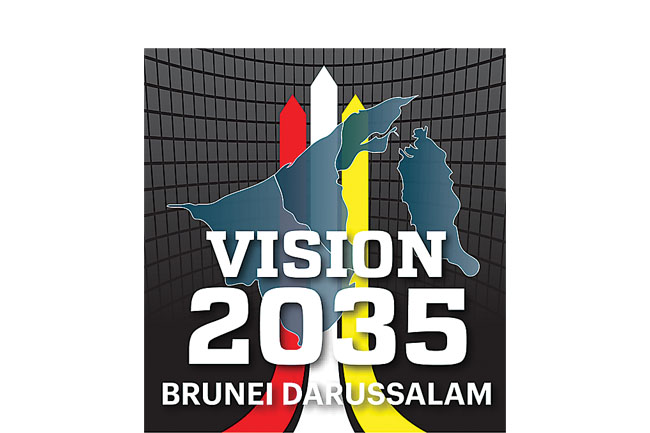Brunei scoring high among Southeast Asian economies
BRUNEI Darussalam was included in various international studies and rankings in December 2017.
One such study was the latest global competitiveness report released by the World Economic Forum (WEF). According to the report, Brunei Darussalam is making major strides in overall infrastructure development, scoring high among the Southeast Asian economies along with Indonesia and Singapore.
The WEF looked into quality as well as availability of roads, railroads, ports, air transport, electricity, and telephone services of each economy to produce an overall ranking. Brunei scored 4.4 out of seven in the 2017-2018 report and ranked 60th globally, from 3.9 out of seven and 78th position in the previous report.
The country scored high in quality of roads with a score of 4.8 and ranking 33rd globally; electricity supply (score 5.4, ranking 53); and mobile phone subscription (score 120.7, ranking 61).
Infrastructure is one of the pillars assessed by WEF, besides institutions, macroeconomic environment, health and primary education, higher education and training, goods market efficiency, labour market efficiency, financial market development, technological readiness, market size, business sophistication and innovation.
The latest WEF report saw Brunei Darussalam surging a significant 12 places from the previous year in the global competitiveness index, ranking 46 out of 137 economies worldwide with a total score of 4.5 out of seven.
The rankings also highlighted Brunei Darussalam as the most improved country in the Asean region overtaking the Philippines which was at one position higher than Brunei in the previous report.
Brunei is now in the top five most competitive economies in the Asean region behind Singapore (three globally), Malaysia (23), Thailand (32) and Indonesia (36); followed by Vietnam (55), the Philippines (56), Cambodia (94) and Laos (98).
As the nation moves towards Brunei Vision 2035, several development projects are well underway as evidenced by the changing landscape of the country.
Additionally, according to the Asian Development Bank’s (ADB) recently released Asian Development Outlook (ADO) update, Brunei Darussalam is expected to record positive growth in 2018.
The report added that in 2018, Brunei is likely to record higher current account surplus.
“A monetary policy linking the Brunei dollar to Singapore dollar has helped Brunei Darussalam to maintain monetary stability in the face of adverse external conditions in recent years,” the ADB said.
According to the Department of Economic Planning and Development (JPKE), in 2016, the annual GDP value stood at $15.7 billion at current prices, compared to $17.8 billion in 2015. Measured at constant prices, GDP recorded a decline of 2.5 per cent in 2016.
In the second quarter of 2017 (Q2 2017), Brunei’s GDP recorded a positive growth of 0.7 per cent year-on-year at constant prices. GDP at current prices was estimated at B$4.3 billion in Q2 2017, compared to B$4.1 billion in Q1 2017.
The International Monetary Fund (IMF) has projected Brunei’s GDP growth to contract to -1.3 per cent this year but rise to 0.7 per cent next year, according to its Asia-Pacific Regional Economic Outlook report released in May 2017.
Meanwhile, Brunei’s economy is expected to see a modest recovery in 2018 with a small positive growth led by improvement in oil and gas production and expansion in investment as infrastructure and foreign direct investment (FDI) construction projects are progressing, according to the preliminary assessment by the Asean+3 Macroeconomic Research Office (AMRO) after its annual consultation visit to the country from October 30 to November 3, 2017.
Also recently published was the ICD-Thomson Reuters Islamic Finance Development Report 2017, in which Brunei Darussalam was ranked in the top 10 performing Islamic finance markets.
Brunei rose to ninth position in the rankings with a score of 47 in the Islamic Finance Development Indicator (IFDI), up from last year’s 14th position with 23 points, registering a 104 per cent increase, and surpassing Qatar and Indonesia.
Malaysia is the best performer in the category with total score of 129, while Bahrain (83) and the UAE (64) are ranked second and third respectively.
IFDI provides rankings and profiles for different Islamic finance markets around the world, drawing on instrumental factors grouped into five broad areas of development as the main indicators, namely Quantitative Development (Islamic Banking, Takaful, Other Islamic Financial Institutions, Sukuk and Islamic Funds), Knowledge (Education and Research), Governance (Regulations, Syariah Governance and Corporate Governance), Corporate Social Responsibility (CSR Activities and CSR Funds Disbursal) as well as Awareness (Seminar, News and Conferences). The indicator does not just focus on the overall size and growth of Islamic finance sectors in different countries; it instead evaluates the strength of the overall ecosystem that assists in the development of the industry.
Brunei Darussalam saw a 410-per-cent increase in the Awareness Indicator to 51 points, from 10 points in 2016, the report noted. The country’s other significant development is in the Knowledge Indicator, which increased by 154 per cent from 22 to 56 points. Brunei Darussalam also registered a 116 per cent increase in Quantitative Development.
According to the report, the most improved performances were by Indonesia and Brunei. Brunei was the biggest gainer in Southeast Asia as it improved across all indicators and its much smaller size compared to Indonesia affected its rationalising coefficients, the ICD- Thomson Reuters report said.
Thomson Reuters is a premier global provider of intelligent information to leading decision markers in the financial, legal, tax, accounting, intellectual property, science and media markets. The Islamic Corporation for the Development of the Private Sector (ICD) is a multilateral development financial institution within the Islamic Development Bank (IDB) Group.
Source: http://borneobulletin.com.bn/brunei-scoring-high-among-southeast-asian-economies/


 English
English




